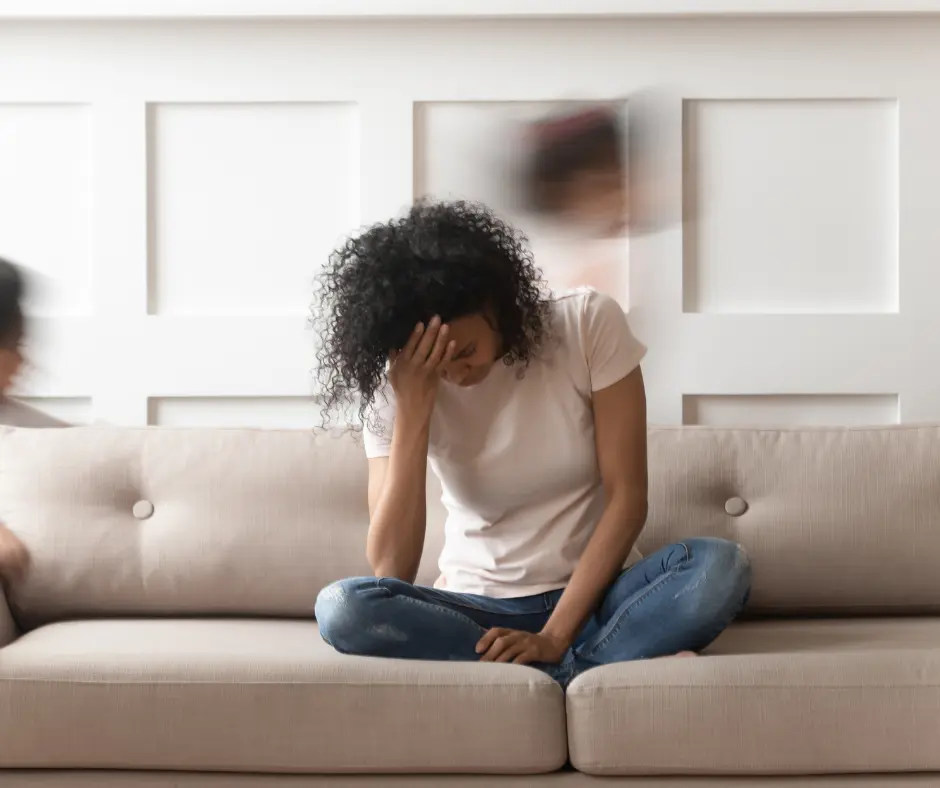Divorce can be one of the most life-altering events a person will ever experience. Often, when people look back at this time in their lives, they will see themselves as two people—the person they were before the divorce and the person they became afterward. Emotions can run high both during and after the case, and it’s not uncommon for those involved to feel divorce guilt about some part of their situation. Feeling remorseful or regretful may be an understandable response to your circumstances.
However, these emotions can be consuming, to the point that carrying them around can impede your ability to gain your emotional footing and move on with your life. A good way to begin working toward achieving emotional balance is by learning how to manage your divorce guilt.
Understanding the Why
Divorce can provide a host of reasons to feel guilty. You may feel remorse about leaving the marriage and hurting your ex. It could be that you have residual guilt for not being able to make things work for the sake of your children.
People who had affairs may regret having betrayed their former spouse. Others may feel guilty for neglecting their marriage to the point that their spouse had to leave. Whatever the reason, it’s essential to identify why you feel guilty and how long you have felt that way.
If the divorce was relatively recent, feeling guilty may be part of your grieving process. If it has been a while and you can’t shake the negative emotions associated with your divorce, you may need help learning to let go. Sometimes being in our own heads too much can make it difficult to gain perspective. Talking with others and getting an outside point of view may help.
You could reach out to loved ones in your support system, work with a therapist, or attend a divorce support group. Gaining another’s viewpoint may offer you the insight that you need to reframe your thinking and release some of your divorce guilt.

Feeling Divorce Guilt About What “Should” Have Been
When a marriage fails, it can have a ripple effect impacting the couple’s kids, family members, and loved ones. For some, going through a divorce may invoke deep feelings of shame for letting all of those close to them down. A parent may lament putting their kids through the trauma of divorce.
They may also feel guilty when their kids are spending placement time with the other parent. Some may feel ashamed for disappointing their family and loved ones. Still, others may be facing tremendous guilt for leaving an unhappy marriage because doing so is contrary to the tenets of their faith.
All of these circumstances can be difficult to navigate, especially when you are simultaneously trying to orient yourself to your new post-divorce life.
Children
- When it comes to your children, it’s important to keep in mind that it can be highly damaging to kids to grow up in a home with parents who are in an unhealthy relationship. Rather than have your children grow up with the example of you and your ex being unhappily married, you have opted to live in separate homes where you can focus on being more present as parents. Leaving your unworkable marriage may have freed you and your ex to heal and be in a better space for your kids. Although they may hurt and want their parents together, in time, your children, like their parents, can work through their feelings of grief and loss and emotionally adapt to their new situation.
Loved Ones
- If you are struggling with guilt over disappointing your family or other loved ones, it’s vital that you recognize when they are doing something to exacerbate the problem. If, for example, your sister frequently mentions the divorce and how you owe it to your ex and or kids to give the marriage another try, it may be time to set a boundary. In that situation, you could thank her for her concern and remind her that you need support from her right now rather than criticism and unsolicited advice. You may have to ask her not to bring the subject up any longer. If she continues, have something in mind to say that can help redirect the conversation.
Faith
- If you are experiencing guilt in connection with your faith, seeking guidance from a supportive source may be helpful. It may be that your place of worship or community has divorce support groups for people who share your faith. Finding others in the same position who have similar experiences and emotions may help you feel less isolated. Further, connecting with others can help validate your feelings and provide new perspectives and insight.
- Check-in with your emotions and make sure you are not being hard on yourself because of someone else’s idea of how your life should look. No matter what anyone thinks or says, they are not standing in your shoes. Your marriage ended for a reason. Consider what has happened and focus on spending time with those who respect your decisions and can be supportive of your healing process.
Contact an Experienced Wisconsin Family Law Attorney
Karyn Youso of First Look Family Law is a trained Wisconsin attorney, Collaborative Attorney, and Mediator. She has extensive experience assisting clients before, during, and after Wisconsin divorce cases. She can help you understand your options and find the right resources. Call us today to set up a consultation so we can take a “first look” at your situation.










